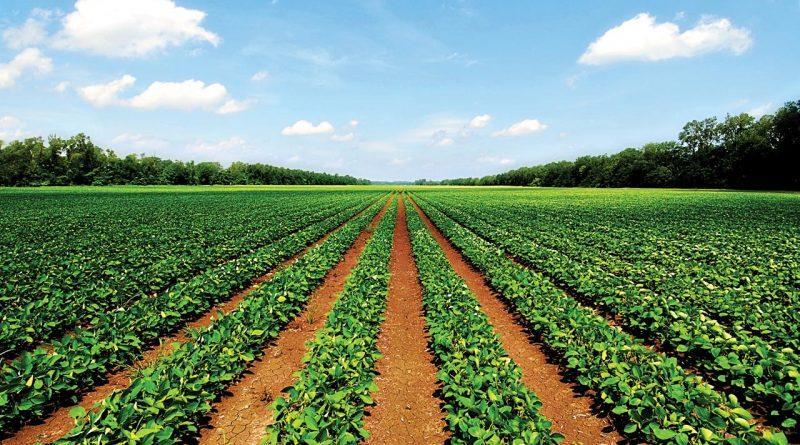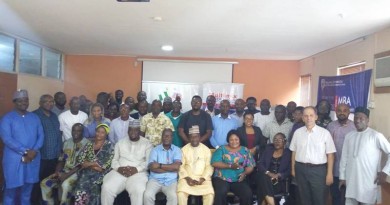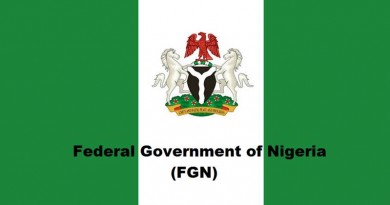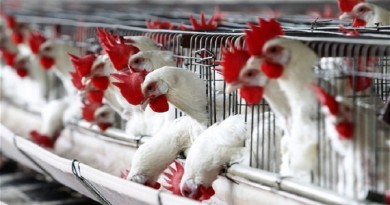The Food and agricultural sector will be worth over $1 trillion by 2030 in Africa
AfDB President Dr. Akinwumi Adesina on Thursday said that the continent’s food and agricultural sector would be valued at an estimated US$1 trillion by 2030. Adesina stated this during a presentation at the World Food Prize Foundation’s Norman E. Borlaug Dialogue (https://apo-opa.info/45SJK8Q) in Des Moines, Iowa, USA.
This year’s theme of “harnessing change,” which centers around bolstering innovation, adaptation, and diversification as well as mechanisms for enhancing resilience, recovery from shocks, and sustainable systems to feed the world, centered around delegates and panelists at the yearly event held in the agricultural heartland of America.
A number of international leaders are actively supporting food security and production in Africa. This included getting together in January of last year for the historic Dakar 2 Summit (https://apo-opa.info/3pcmbZA), a global Feed Africa gathering.
Ironically, the majority of the food on the continent is imported, despite making up 65% of the world’s remaining uncultivated arable land. African leaders want to make sure that their nations export food and are self-sufficient in it. Realizing that there will be nine billion people on the planet by 2050 means that Africa will urgently need to boost agricultural production to keep up with growing food demands.
Participating actively in the Borlaug Dialogue was the African Development Bank, which is spearheading the drive to feed Africa. Adesina outlined the accomplishments of the Dakar 2 summit, which the Bank organized in collaboration with the African Union and the Senegalese government, during a session on Thursday titled “From Dakar 2 to Des Moines.”
Adesina described how, within five years, 34 African leaders had approved country-specific food and agriculture delivery compacts that resulted in action- and outcome-driven programs to guarantee food security and unleash the agricultural potential of the continent. This aligns with the fundamental principles of the Bank’s Feed Africa initiative, which was introduced in 2016. He continued, saying that since then, the plan has helped more than 250 million people, who have benefited from enhanced agriculture technologies.
Adesina claimed that partners had given the food compacts over $70 billion in support. Over the following five years, $10 billion is anticipated from the Bank.
According to the head of the Bank, Dakar 2 demonstrated the determination of African leaders to guarantee self-sufficiency on the continent. President Sahle-Work Zewde of Ethiopia, one of the leaders present at the Borlaug Dialogue, declared: “We, the African leaders, are dedicated to achieving food self-sufficiency.” For the first time in its history, Ethiopia is exporting wheat to its neighbors and is self-sufficient in wheat production.
Zewde stated that the Technologies for African Agricultural Transformation (TAAT) program of the African Development Bank had played a significant role in this ground-breaking accomplishment. Ethiopia’s wheat production is expected to increase by 1.6 million metric tons in 2023 thanks to the distribution of more than 100,000 tons of certified seeds of heat-tolerant wheat types by TAAT.
Vice President Kashim Shettima of Nigeria further emphasized the high degree of African participation in the Borlaug Dialogue by discussing the significance of leadership and how it is necessary to feed and develop the continent. He emphasized, “A nation rises or falls dependent on the quality of its leadership.”
Speaking at a World Food Prize side event on improving African agriculture through Special Agro-Industrial Processing Zones (SAPZs), Nigeria’s Plateau State Governor Caleb Mutfwang emphasized the importance of strong leadership as well. “It’s time to address the biggest issue in the room, which is corruption,” he declared. He went on, “We want investors to know that investing in Plateau State is a win-win situation, and we take this seriously.” Governor Mutfwang also emphasized the significance of eliminating needless administrative roadblocks in order to encourage investors.
The African Development Bank and its co-funding partners have successfully mobilized $661 million in finance for SAPZs that were established by the public sector, with a commitment of US$853 million already made. All together, the partners are contributing over $1.5 billion to the creation of 25 agro-industrial zones and the maintenance of ecosystems across 13 nations.
Adesina urged stakeholders and investors to make bold investments in the African food and agriculture industries. He claimed that there was a lot of political intent and that the actual results held great potential.
The Borlaug Dialogue receives regular contributions from the African Development Bank. Akinwumi Adesina, the 2017 World Food Prize laureate, is recognized for his exceptional and innovative work in the African food system, including ending corruption in the Nigerian fertilizer industry, mobilizing resources for smallholder farmers, and boosting crop and production efficiency, all of which occurred during his previous position as agriculture minister.
Heidi Kuhn (https://apo-opa.info/3QCCNEC) is this year’s recipient of the Borlaug Prize. She is known for her farmer-focused development approach and her efforts to revitalize farmlands, food security, livelihoods, and resilience in conflict-affected areas across the globe.
Ambassador Kenneth M. Quinn, President Emeritus of the World Food Prize Foundation, and Ambassador Terry Branstad, President of the Foundation, expressed their enthusiastic support for the African Development Bank’s feeding activities.
Click this link (https://apo-opa.info/3sbp7ae) to read the African Development Bank President’s remarks from the Dakar 2 to Des Moines event.
Click here (https://apo-opa.info/3Q9Jw7C) to view the entire text of the African Development Bank President’s remarks made during the SAPZ side event.




